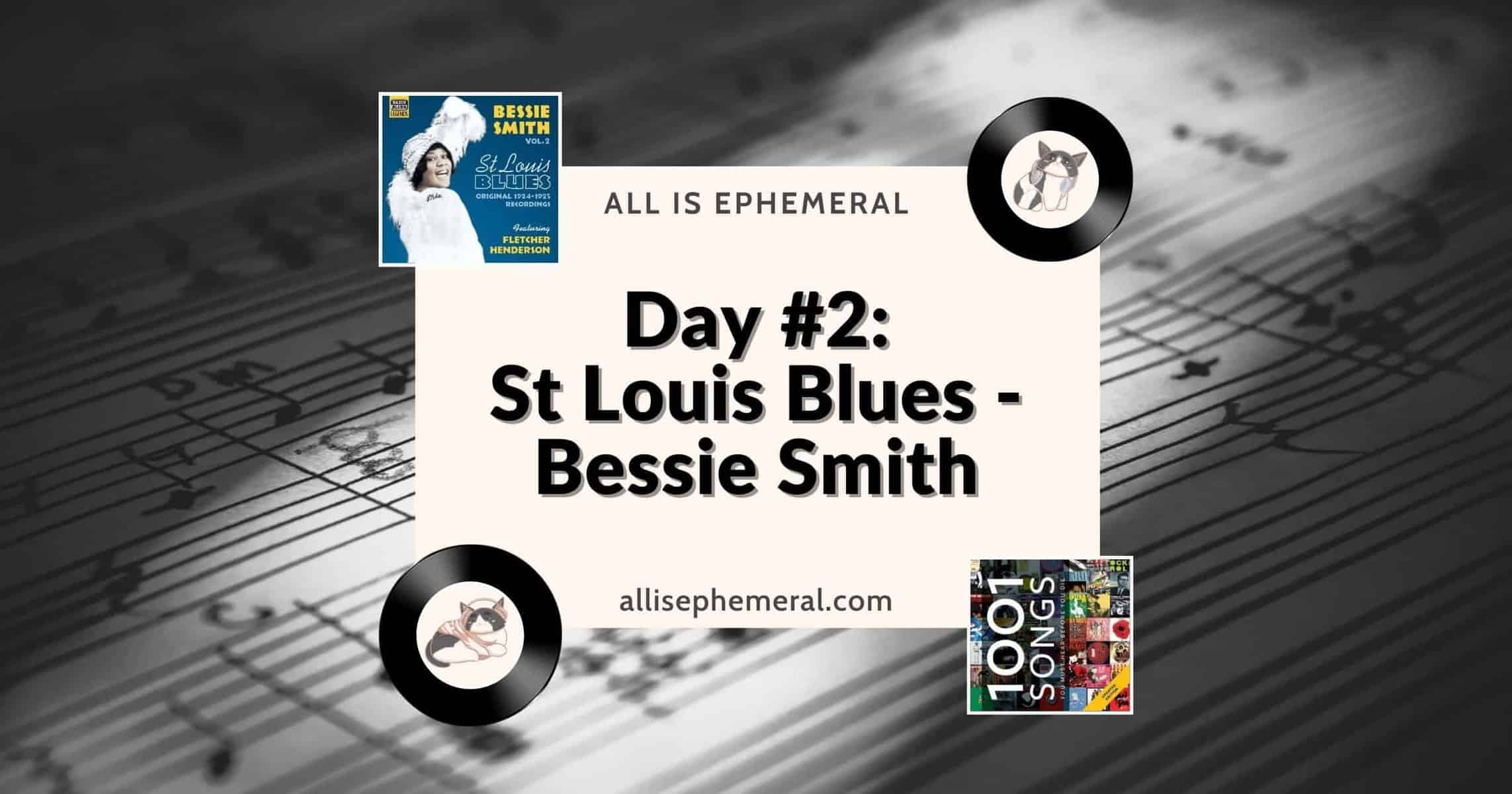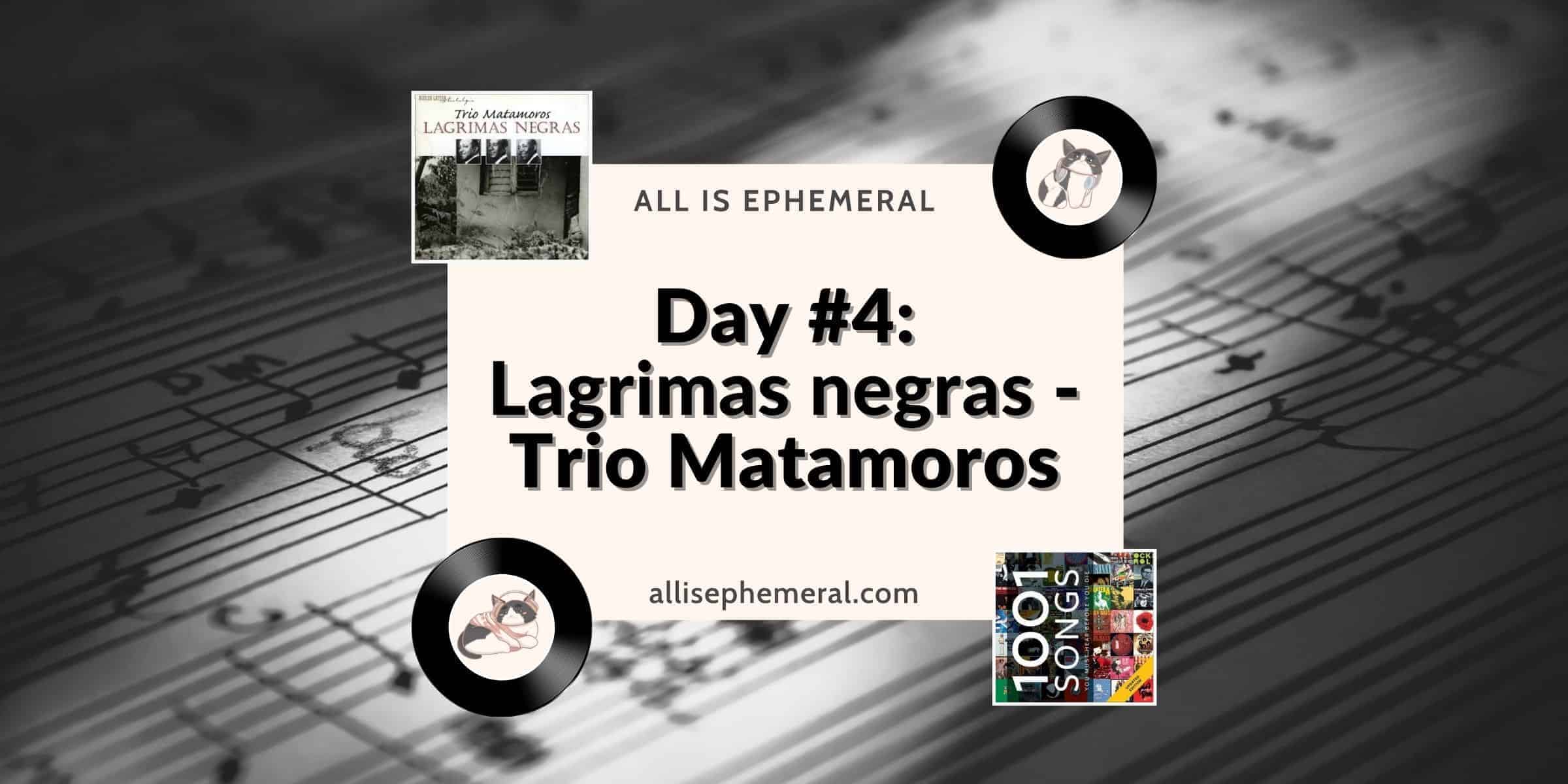
1001 Songs Challenge #3: Allons à Lafayette (1928)
 On 11 February 2019 I set myself the challenge of reading 1001 Songs You Must Hear Before You Die by Robert Dimery (ed.) and following the book’s advice to the letter. I’ve previously read 1001 Films… and started 1001 Albums… but felt 1001 Songs… would be a sensible place to start for what I have in mind here.
On 11 February 2019 I set myself the challenge of reading 1001 Songs You Must Hear Before You Die by Robert Dimery (ed.) and following the book’s advice to the letter. I’ve previously read 1001 Films… and started 1001 Albums… but felt 1001 Songs… would be a sensible place to start for what I have in mind here.
My challenge is to read about one song per day and listen to it (YouTube and Spotify, I need you tonight!) before sharing my own thoughts. Some songs I will love, others I’ll hate, and I’m sure there will be those that leave me perplexed but listen to them I shall.
I’ll also try, and most likely fail, to pinpoint the best song from the 1001 on offer but I’m nothing if not foolhardy. Instead of one song, I’m predicting I’ll have about 100 favourites by the end and may have to resort to a Top 10 so far to maintain any semblance of sanity.
of one song, I’m predicting I’ll have about 100 favourites by the end and may have to resort to a Top 10 so far to maintain any semblance of sanity.
So long as I post every day (including Christmas) then this challenge should come to an end on Wednesday 8 November 2021. Staying with the Barney Stinson theme I am hoping that the whole experience will prove to be… legendary!
Joe & Cleoma Falcon – Allons à Lafayette (1928)
Allons à Lafayette
“Allons à Lafayette” is the B-side of a 78rpm single recorded by Joe Falcon and Cléoma Breaux in 1928. The song is based on an older traditional tune called “Jeunes gens campagnard”. While there is some mystery on the reason Okeh Records didn’t release Dr. James F.
Next up is a jaunt into 1920s Louisiana and, for me, a first taste of cajun music. The origins are pretty complicated but go back to the days of colonialism when France held large portions of Canada and Louisiana. Cajun culture developed in southern Louisiana after the state was sold to the US in 1803. This culture included music, of course, and our third song on this list is an example of this.

Recorded by couple, Joe and Cleoma Falcon, Allons à Lafayette is one of the earliest examples of recorded cajun music. Joe plays the accordion while Cleoma is on the guitar and provides the vocals. The song itself is a plea from a man to a woman asking her to go with him to Lafayette and to change her name. He is angry and frustrated at the current state of events and perhaps by the challenge this woman presents.
The first thing that struck me about this song was the music. The guitar and accordion combination is wonderful and is, for me, more striking than the vocals. Cleoma has a good voice which blends well with the melody but the music itself is the star of the show here. I’d never listened to cajun music before but based on this song, I’d be more than happy to hear more.
Favourite song so far:
Joe & Cleoma Falcon – Allons à Lafayette (1928)





